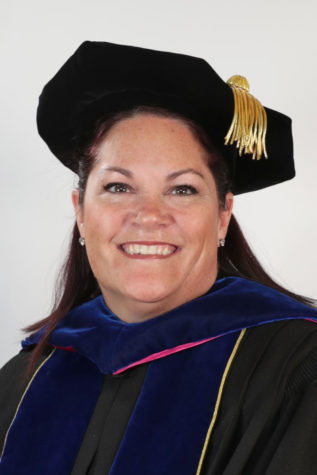MU selects Galapagos, naturally
November 29, 2016
Following in the footsteps of Charles Darwin, this January a group of 36 Mercyhurst students will be traveling to the Galapagos Islands.
The trip is attached to two courses taking place in Mini Three, one taught by Peter Stadtmueller, M.S., assistant professor of Graphic Design, whose students will be learning how to use GoPro equipment. The other class, Darwin and the Galapagos, will be taught by Joanne McGurk, Ph.D., assistant professor of English and Sara Turner-Cooper, Ph.D., assistant professor of Biology.
“Our mission is to try to come to understand the genesis and then the impact of Darwin’s On the Origin of Species,” McGurk said.
The Galapagos Islands and their diverse wildlife are famous for giving Darwin the inspiration to write “On the Origin of Species,” first published in 1859, in which he first spoke about the now universally accepted principle of natural selection, the idea that species that are better adapted to survival will pass on their genes.
The Galapagos are 600 miles off the shore of Ecuador, which made them isolated and thus the perfect spot for Darwin to do his studies.
Since the government of Ecuador has restrictions on the number of people who are allowed to visit the Galapagos each year, Mercyhurst students are very fortunate to be able to visit through Mercyhurst’s partner, Education First, which received permission.
The logistics of the trip were arranged by Heidi Hosey, Ph.D., dean of Global Programs and Experiential Learning, who did the planning for the trip including recruiting faculty, working with vendors and working with students.
Escaping the cold, the group will be leaving on Jan. 4. They will fly into Quito on the South American mainland, then fly to the various islands.
Once on the islands, they will go snorkeling with the turtles and sea lions, go bird watching, visit the island’s Darwin Center, and even be able to straddle the equator, standing in both the northern and southern hemisphere at the same time. They will return Jan. 15, in time for spring semester.
The trip, which includes elements of science and humanities, among others, is designed to appeal to a wide range and number of students, and to people of different majors.
It can count towards an English, REACH, elective, Biology, or Beyond the Gates requirement. The Beyond the Gates requirement, now in place for freshmen, will require all students to be involved outside of campus, and will mean that more travel opportunities will be available to students in the future.
With a thrilling itinerary and the valuable chance to study Darwin’s book in the context of the setting that inspired it, students on the trip will no doubt have a wonderful trip.
“For me the most wonderful thing about this is that we really get to experience the course ideas, the material, in their proper setting. Being there, getting on the ground, makes it so much more meaningful,” McGurk said.









Marc Patry • Nov 30, 2016 at 7:21 am
Just a clarification – the government of Ecuador does NOT set a limit to the number of people who can visit the islands every year. I worked at the Darwin Station for 4 years, and now run my own Galapagos travel company. Last week, I was meeting with the Galapagos National Park director – there is no such limit. Perhaps there should be – but there is none at this time.
Regards,
Marc Patry